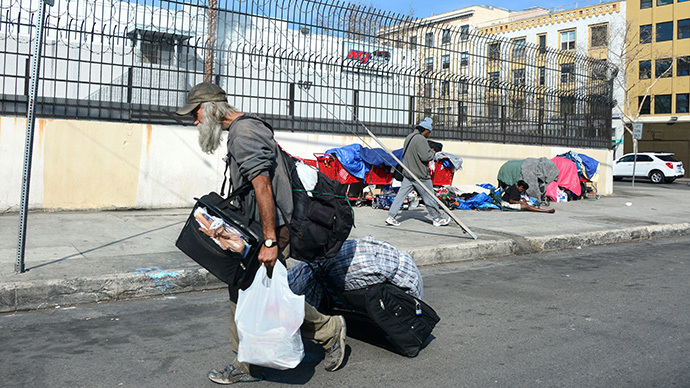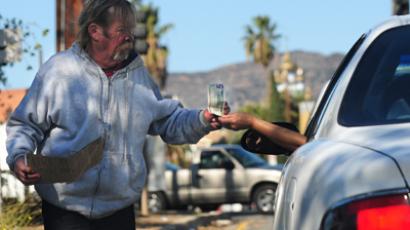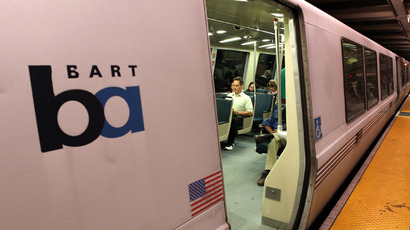LA's homeless allowed to live in cars, appeals court rules

A federal appeals court ruled that a Los Angeles ordinance preventing homeless people from living in cars is unconstitutionally vague and struck down the ban.
The 9th Circuit Court of Appeals said the law that banned people living in their cars or recreational vehicles on a public street or in a public parking lot (even overnight) is unconstitutionally vague and encourages arbitrary or discriminatory enforcement. The decision overturned the District Court of Appeals ruling in favor of the city.
The ban was enacted in 1983, but faced renewed enforcement in 2010, after Los Angeles officials held a September town hall to address complaints of homeless people living in vehicles on streets in the Venice area of the city. City officials repeatedly said at the meeting that the “concern was not homelessness generally, but the illegal dumping of trash and human waste on city streets that was endangering public health,” the ruling said in the factual background.
The Los Angeles Police Department then created the Venice Homelessness Task Force, made of 21 officers to cite and arrest people living in cars, as well as distribute information about local shelters and social services. During their training, task force members were told that “an individual need not be sleeping or have slept in the vehicle to violate” the city ban, and that the LAPD officers should look for “possessions normally found in a home, such as food, bedding, clothing, medicine, and basic necessities.” They were to offer a warning for the first violation, a citation for the second and make an arrest on the third.
In reality, the various members of the task force interpreted their enforcement duties in different ways, making it “incompatible with the concept of an evenhanded administration of the law to the poor and to the rich that is fundamental to a democratic society.”
"Is it impermissible to eat food in a vehicle? Is it illegal to keep a sleeping bag? Canned food? Books? What about speaking on a cellphone? Or staying in the car to get out of the rain?" Judge Harry Pregerson wrote for the panel. "These are all actions plaintiffs were taking when arrested for violation of the ordinance, all of which are otherwise perfectly legal."
One of the plaintiffs in the case, Steve Jacobs-Elstein, lost his home in 2007 and began living in his car. When he was told by a police officer of the city’s ban in 2009, he looked up the ordinance, and began parking at motels and other private property.
In September 2010, he was parked on a public street in front of a church, waiting for its food distribution program to open, when two task force officers ordered Jacobs-Elstein out of his car, searched it and gave him a citation. They did not give him any information on social services. The same officers later arrested him in October 2010. They, along with other members of the task force, repeatedly yelled at him and searched his car over the course of several months. It was not until January 2011 that Jacobs-Elstein received any information on complying with the city’s law.
“Yet Jacobs-Elstein soon discovered that this information was not helpful to him,” the ruling said. “It provided information only on RV parks, where Jacobs-Elstein could not park his car, and shelters, where he could not keep his belongings during the day.”
Jacobs-Elstein was joined by three other plaintiffs: Chris Taylor, Patricia Warivonchik and William Cagle. In October 2010, Taylor was issued a warning during his first interaction with the task force. He was subsequently arrested in December 2010, despite showing officers proof he had slept in a shelter and not in his car. In November 2010, Warivonchik was driving the RV she lived in to a local fair where she planned to sell artwork when she was pulled over for not using a blinker and given a written warning for living in the RV. Cagle was arrested in October 2010 because his van contained clothing, bedding, boxed foods, bottles of medicine and a portable radio. When he explained to the arresting officers that he was not sleeping in his vehicle, he was told that sleeping is not the only criteria for violating the ordinance.
Although the plaintiffs attempted to comply with the law, “there appears to be nothing they can do to avoid violating the statute short of discarding all of their possessions or their vehicles, or leaving Los Angeles,” the ruling said.
“This broad and cryptic statute criminalizes innocent behavior, making it impossible for citizens to know how to keep their conduct within the pale,” Pregerson wrote in the ruling.
The ban “is broad enough to cover any driver in Los Angeles who eats food or transports personal belongings in his or her vehicle,” the court said. “It appears to be applied only to the homeless.”
Carol Sobel, the lawyer for the group of homeless people, told KCRA that she hoped the ruling would force other cities within the 9th Circuit to amend their statutes against sleeping in vehicles.














